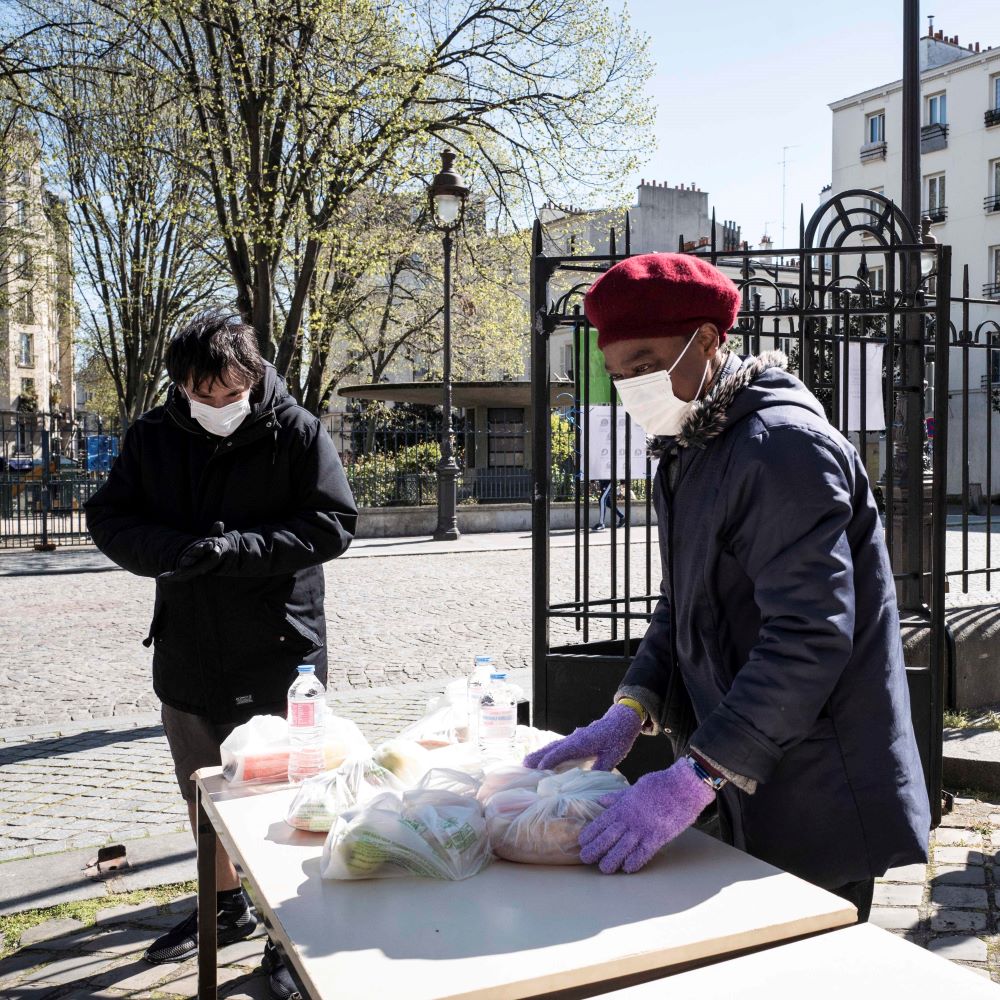Social distancing is necessary to curb coronavirus, but it runs the risk of worsening another epidemic. The rising tide of loneliness has been labelled a "silent killer", and the current crisis could make this worse.
Loneliness is linked to both mental health conditions such as depression and suicidal thoughts and physical health problems such as high blood pressure, obesity and an increased likelihood of strokes. It does not just affect the elderly. Recent studies have identified the late teens and early twenties as well as mid fifties as age groups that are particularly at risk.
It is not inevitable that “social distancing” will lead to large-scale loneliness. The way we practise it could leave us either more or less lonely. Loneliness occurs when someone feels disconnected from others. This is why it is both possible to be alone without feeling lonely, and also to be in a crowd of people and yet feel lonely. Research indicates that it may well be a biological alarm – warning the person of potential social isolation and the need to reconnect with others to ensure their social support.
Local congregations play a vital role in tackling such isolation and social fragmentation. Those who do not recognise the divine institution and inspiration of the Church can still discern its impact in this sphere. In 2014, the Social Integration Commission numbered religious congregations among the institutions where citizens were most likely to meet someone different from them.
In the coronavirus pandemic, churches are once again being revealed as part of an essential infrastructure of social connection and reassurance. While different levels of government can co-ordinate emergency provision of food and shelter, it is in local congregations and the other institutions of civil society that mutual care and support can be sustained and promoted – and gaps and injustices in provision can be identified and challenged.
Community organising is best known for its campaigns. But the strapline of Citizens UK, Britain’s largest and oldest community organising alliance, is “reweaving the fabric of civil society” – a vital and challenging task in an increasingly individualistic and consumerist society.
That is why an increasing focus of Citizens UK’s work is helping local congregations to build a more open and relational culture, so that they are not only places where people gather, whether physically or virtually, but where real connection and care is experienced.
Since the beginning of the pandemic, Citizens UK has conducted a rapid listening campaign across its 450 member organisations. Its aim was to identify the main concerns that communities were facing as they practise social distancing.
While the coronavirus pandemic generates new social needs that local congregations are well-placed to meet, the listening reveals the extraordinary strain it has placed on their capacities. They are having to learn new patterns of association via phone and internet, at the same time as they grapple with shortages of income, and of volunteers for food banks, befriending services and other community projects, because of their members who are self-isolating.
Some of the habits of community organising have had to change in this period. The “one to one” meetings that are its central practice can no longer happen face to face. But these conversations, which identify grassroots leaders and common interests, are more important than ever, if local institutions are to build the capacity to respond to these challenging times.
In many ways, the phrase social distancing is itself a misnomer. What is required is physical distancing alongside social and spiritual connection. Today, Citizens UK is gathering hundreds of religious and civic leaders to explore these challenges in more detail, and to receive training in how to harness the potential of digital organising, and to think carefully about those who find it hard to access.
This is an important start. But the sheer scale of the challenge needs to be acknowledged. Debate has focused in recent days on packages of rescue and support for the economy. If we are to curb coronavirus without generating an epidemic of loneliness, the same attention needs to be given to supporting the institutions which weave the fabric of our common life.
Jennifer Lau is Reader in Adolescent Mental Health at the Institute of Psychiatry at King’s College London
Angus Ritchie is Director of the Centre for Theology and Community in east London. His latest book is Inclusive Populism: Creating Citizens in the Global Age.
The CTC blog contains resources for churches to reflecting on the pandemic, and to respond to this fast-changing situation



 Loading ...
Loading ...
What do you think?
You can post as a subscriber user ...
User comments (0)